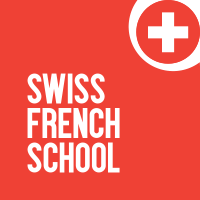Become a professional French translator
What does a translator do?
Being a translator consists on converting text from one language to another. They need to be fluent in at least two languages and serve as intermediaries between people, businesses, organizations, and governments.
Having professional proficiency in French is highly advantageous for translators in Switzerland due to high demand in the market, career opportunities, and the country's linguistic importance.
The translator's tasks are varied. Before translating any text, translators must prepare by discussing the project with the client or employer, gathering necessary documents, and considering expected narrative elements. Messages should neither be changed nor transformed, and the translator must consider potential language subtleties and cultural differences.
They then translate, taking into account specific terms and the field (law, medicine, finance, technology, etc.). The translator must carefully review their own work and make corrections to ensure accuracy, fluency, and linguistic appropriateness. They have to meet set deadlines and prospect the market to develop their client base.
What are the required skills to be a translator?
Translators must possesses undeniable linguistic proficiency, with a deep understanding of source languages, grammar and vocabulary and also idioms and common expressions.
The translator needs to understand cultural differences to make sure the translation is accurate and suitable. Doing thorough research to understand specific topics and using the right technical words are very important.
Doing translations carefully is essential to make sure nothing gets lost in the meaning.
Knowing how to use computer tools for translation is more and more important for working efficiently. This means using software that helps with translation and knowing how to use databases and machine translation programs.
What kind of education do you need to be a translator?
To become a translator in Switzerland you usually need to go to a special school like the FTI (Faculty of Translation and Interpreting), or a specialized higher education institution in Geneva or Winterthur/ZH.
Bachelor's degree (BA) in multilingual communication or Bachelor's degree
The Bachelor's program lasts for 3 years and allows students to undergo multilingual training with a program including translation, languages and civilization, intercultural communication, computer science and working methods, specialized communication, language technologies... A semester abroad is mandatory for candidates.
Master's degree (MA)
The Master's program, lasting one and a half to 2 years (depending on the number of passive languages studied), allows for specialization in:
- Master's in translation
- Master's in multilingual computer processing
- Master's in conference interpreting
When passing the exams, you will receive your translator's diploma, but you can keep studying if you want.
What are the career opportunities for translators?
The profession of translator offers a range of career opportunities, reflecting the growing demand for intercultural communication in many fields. Although, many translators choose to work as freelancers, allowing them to manage their schedules flexibly and collaborate with various clients.
Working within a translation agency is also an option. Language professionals can participate in projects on diverse topics and collaborate with a multidisciplinary team. Multinational companies frequently seek in-house translators to facilitate communication between different national and international partners.
As a translator in Switzerland, there are opportunities within government institutions, international organizations, or non-governmental organizations, participating in diplomatic, legal, or humanitarian missions. This is the case with the United Nations (UN), which recruits translators and interpreters through linguistic competitions.
Some translators specialize in the field of media and publishing, working on the translation of books, articles, or scripts for film and television. Others may become experts by specializing in the field in which they practice translation (science, law, finance, etc.).
Are there additional training opportunities to improve your professional French?
You can enhance your journey as a translator by taking additional courses. Swiss French School provides professional French training online and on-site.
Keep improving your language skills by enrolling in advanced French courses and staying updated on language trends.
Swiss French School offers advanced courses to help you refine your grasp of language subtleties and expand your professional vocabulary. With our online platform, you can access courses from anywhere, at any time.
Our native French teachers will guide you throughout your training, assisting you in improving your language skills.
For more information on training programs and to select the one that fits your needs best, contact Swiss French School directly.

